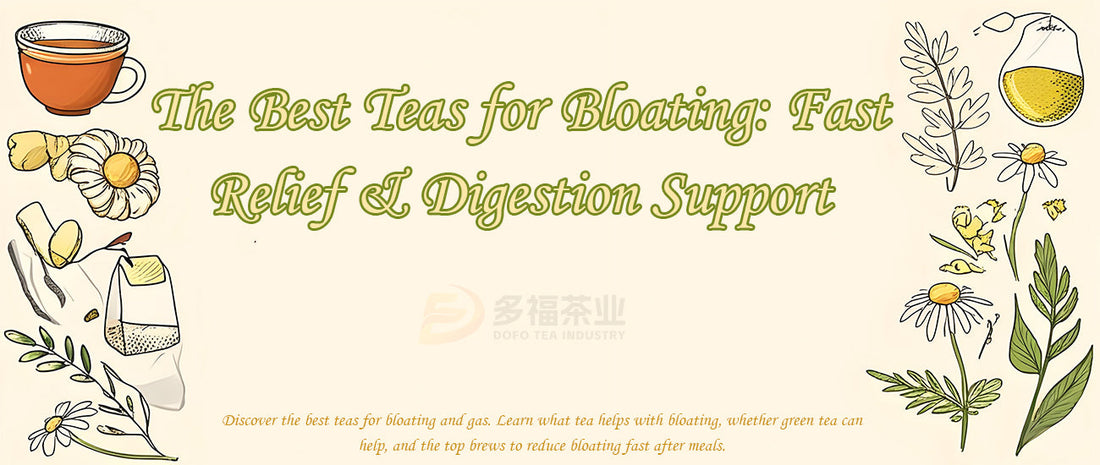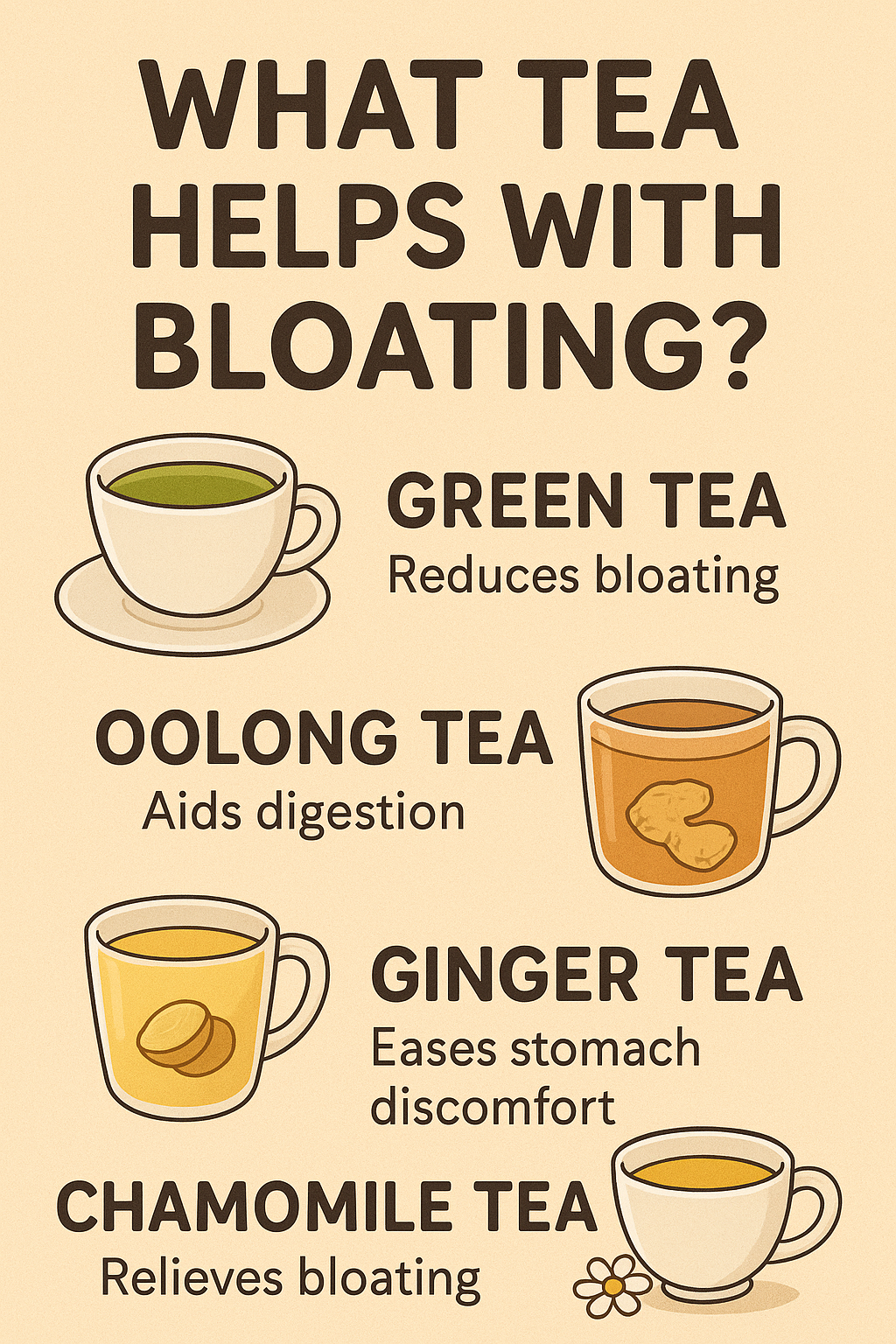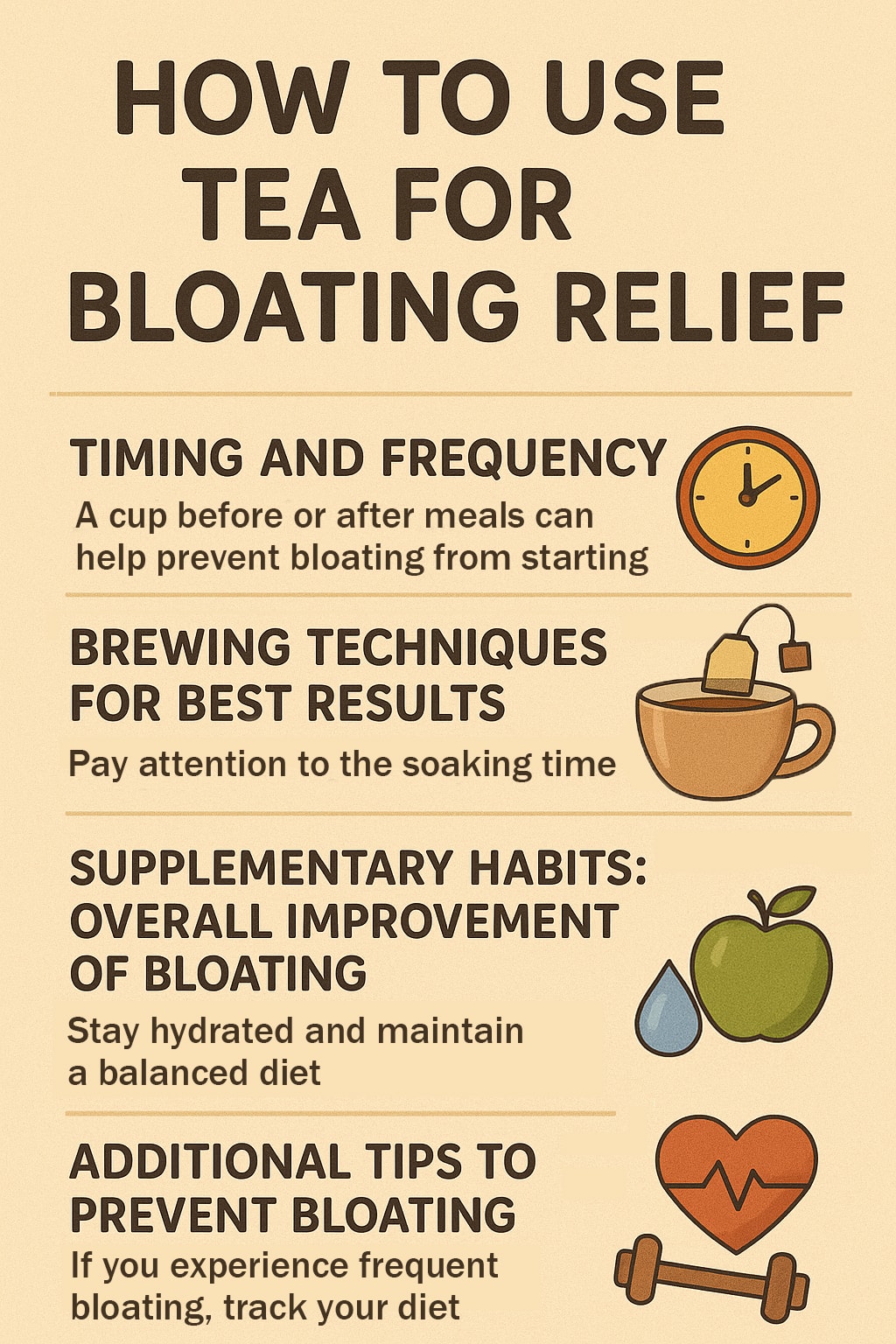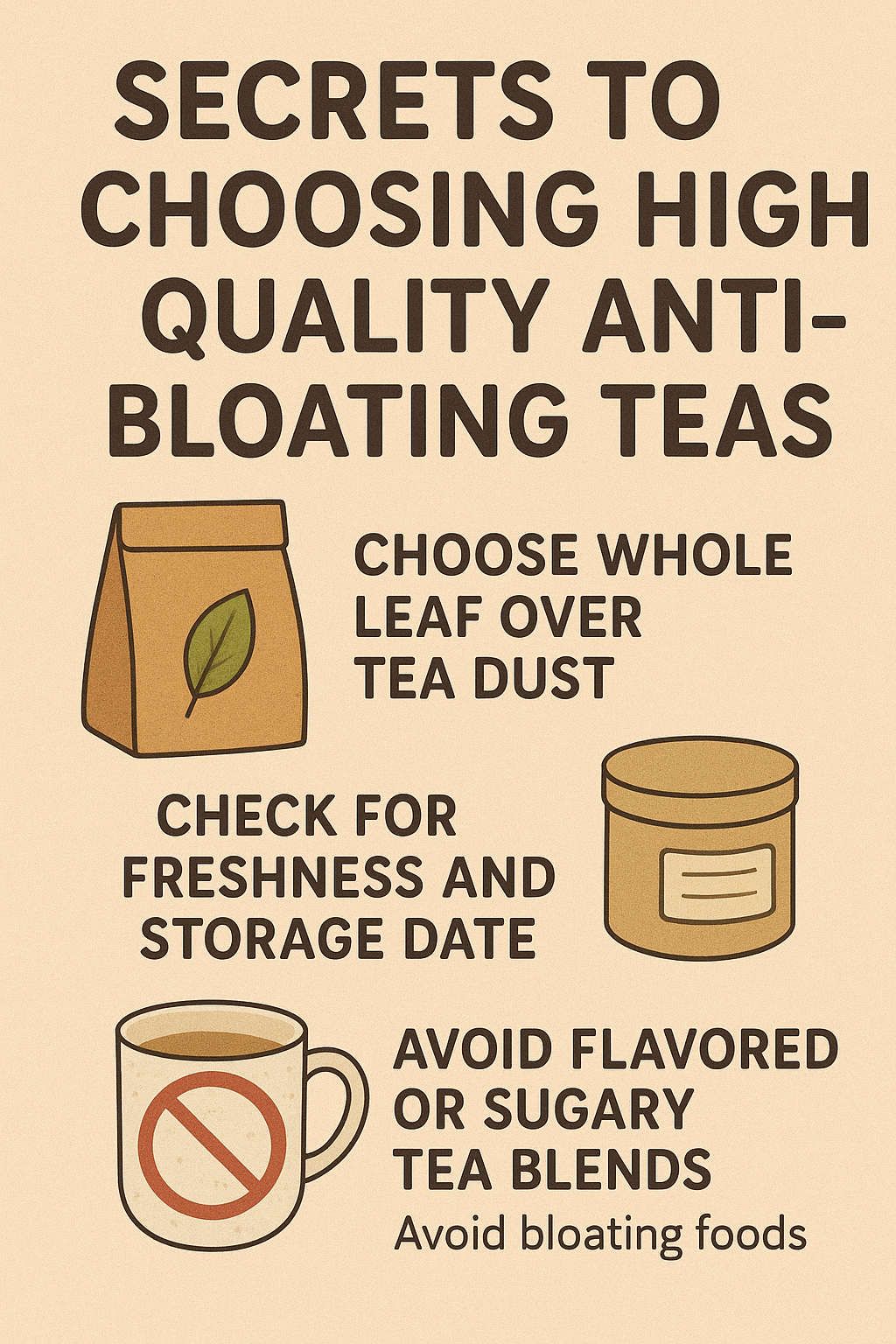
The Best Teas for Bloating: Fast Relief & Digestion Support
liujiehangShare
Bloating is a common problem. Many people feel discomfort after eating. Some feel heavy, some feel pressure in the belly. Tea can help. Certain teas may calm the stomach and support digestion.This guide shows which teas work and how to use them.
Natural Solutions – What Tea Helps with Bloating?

Does Green Tea Help with Bloating?
Green tea may help with bloating. It has catechins that relax the intestines and reduce gas. Its light caffeine can support digestion. One study found daily green tea may lower belly fat over 12 weeks. Choose loose-leaf green tea for better benefits.
Does Oolong Tea Help with Bloating?
Oolong tea sits between green and black tea in terms of oxidation. It contains both polyphenols andtheaflavins. These may help balance bacteria in your gut and reduce inflammation.
Some researchers believe that oolong supports lipid metabolism and fat digestion.
If bloating comes with heavy meals or fatty foods, oolong might be a good option.
Does Ginger Tea Help with Bloating?
Ginger tea can soothe an upset stomach and promote digestion. It can also reduce intestinal inflammation, thereby alleviating bloating caused by indigestion. Steep fresh or dried ginger in hot water for 5-10 minutes.
Does Chamomile Tea Help with Bloating?
Chamomile is a gentle flower with a calming effect on the whole body. In the digestive system, it helps relax the muscles in your gut wall, which can ease cramps, reduce trapped gas, and supportsmoother bowel movement. People with IBS or anxiety-related stomach upset may find it especially soothing.
According to MedlinePlus, chamomile may also help reduce inflammation and improve sleep quality. Since it’s naturally caffeine-free, it’s perfect for evening use.
Why Does Tea Reduce Bloating?
Tea helps relieve bloating in several ways. Its polyphenols fight inflammation and support healthy gut bacteria. Mild caffeine gently stimulates bowel movements. The warmth of the tea relaxes digestive muscles, while hydration keeps digestion smooth.
Some teas, like pu-erh, may also aid fermentation in the gut, helping food break down more easily.Together, warmth, hydration, and natural compounds make tea a simple, soothing choice for bloating relief.
How to Use Tea for Bloating Relief

Timing and Frequency
When you drink your tea matters.
A cup before or after meals can help prevent bloating from starting. Some people also find it useful to sip tea slowly throughout the day to keep digestion on track.
Here’s a simple daily routine:
- Morning:Green or oolong tea to gently boost metabolism.
- Afternoon:Ginger or pu-erh tea to aid digestion after lunch.
-
Evening:Chamomile or peppermint tea to relax both the mind and digestive tract.
Tip: Avoid drinking large amounts in one go—this can overwhelm the stomach and slow digestion.
Brewing Techniques for Best Results
Loose-leaf tea often has a stronger flavor and more active compounds than tea bags. Use fresh, filtered water and watch your steeping time—over-steeping can make tea bitter and irritate the stomach.
Brewing guide:
- Green tea: 70–80°C, steep 2–3 minutes
- Oolong tea: 85–90°C, steep 3–5 minutes
- Herbal teas:95–100°C, steep 5–10 minutes
Supplementary Habits: Overall Improvement of Bloating
Tea works even better with digestion-friendly habits. Eat slowly and chew well to reduce swallowed air. Avoid carbonated drinks and artificial sweeteners, which can cause gas.
A short walk after meals helps food move along. Stress management—like deep breathing or light stretching—can also reduce bloating episodes.
Additional Tips to Prevent Bloating
If bloating happens often, track your food to spot possible triggers, such as high-FODMAP ingredients. Eat smaller, more frequent meals and stay hydrated between them.
Lastly, avoid eating too close to bedtime, so your digestive system has time to work before you sleep.
Secrets to Choosing High-Quality Anti-Bloating Teas

Not all teas sold in stores are equally helpful. Many tea bags use low-grade dust and contain added flavors or sugars.
Look for:
Choose Whole Leaf over Tea Dust
Whole leaves have more nutrients and fewer additives. They also provide a smoother taste.
Check for Freshness and Storage Date
Old tea loses aroma and antioxidants. Store your tea in airtight containers away from light and moisture.
Avoid Flavored or Sugary Tea Blends
These may include artificial ingredients that irritate the gut. Stick with pure tea or natural herbs.
FAQ- Frequently Asked Questions
Q1: Can tea help with bloating after eating?
Yes. Teas like peppermint, ginger, and oolong may ease digestion and reduce gas.
Q2: How fast does tea work for bloating relief?
Some people feel better within 30 minutes. Effects depend on the type of tea and the cause of bloating.
Q3: Can I drink tea daily to prevent bloating?
Yes, many herbal and true teas are safe for regular use. Just avoid overdoing caffeine.
Q4: Should I drink hot or cold tea for bloating?
Warm tea tends to work better. It helps relax your stomach muscles and supports better circulation.
Q5: Are there teas that might make bloating worse?
Yes. Sweetened or heavily flavored teas may upset your stomach. Also, avoid oversteeped black tea if you have sensitivity to tannins.
Come to DOFO and Discover Digestive-Friendly Teas
We offer premium green, oolong, and herbal teas, all made from whole leaves. Each blend is carefully formulated to naturally promote health and aid digestion.





